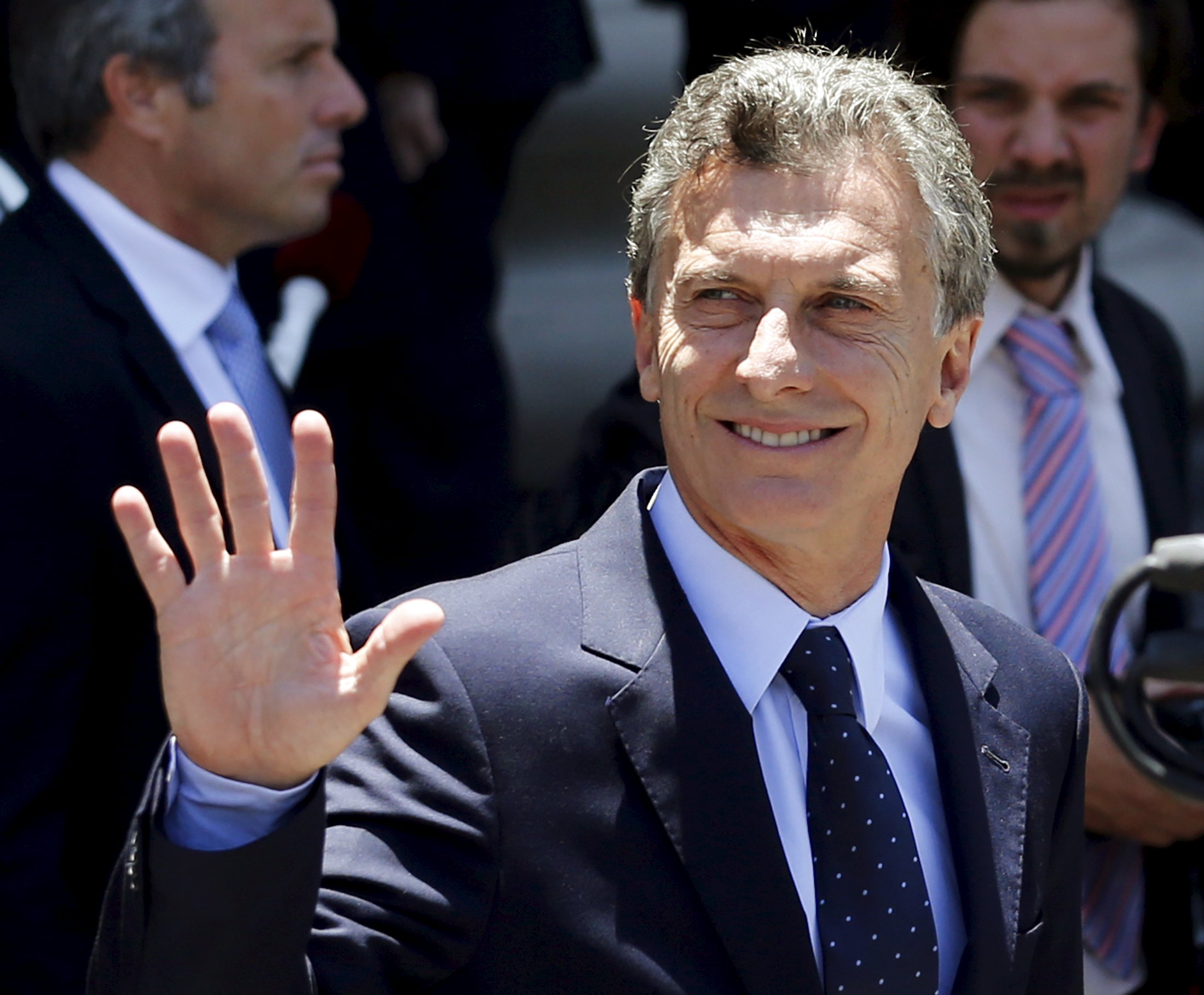
When President Mauricio Macri took office in Argentina last December, he faced two monsters that his 44 million compatriots know only too well. The first was an economy ravaged by spendthrifts, who’d driven public finances into disarray and then papered over the mess with magical statistics. The second was the quandary of how to restore sensible government without inflicting more sacrifice on an already castigated society, whose woes Macri’s populist opponents predicted and are masters at exploiting.
Argentina is hardly alone in this dilemma. As last decade’s commodities boom collapsed, leaders who squandered the bonanza fell out of favour across Latin America.
Now the centrist new managements in Brazil, Peru and Paraguay -- and one day perhaps in Bolivia, Ecuador and Venezuela -- must convince the populace that their cant of austerity is better than the cant of the extravagant populists they oppose. “Through history we have seen the political pendulum swing from populism to technocratic engagement, which often ends up generating frustration and more populism,” said Argentine historian Federico Finchelstein, of the New School for Social Research in New York. “Now we are in the technocratic moment.”
Macri knows the stakes. That’s why he campaigned on the promise not just to rescue Argentina’s economy but also to halt the country’s plunge into social misery. On the first count, he’s done admirably, sharply devaluing the bloated peso, slimming the bureaucracy and cutting lavish subsidies for electricity and transportation. He also reached out to holdout creditors, ending the country’s decade-and-a-half cold war with the global financial markets. The country has since returned to the bond market, construction is showing signs of recovery, and even Argentina’s cranky opposition briefly fell quiet. “I see so much joy,” he told corporate leaders at a grand investor summit Argentina hosted last month.
Although the belt-tightening won kudos from business leaders and Washington, it’s come at a cost. The currency devaluation stoked inflation, eroding workers’ wages, while utility subsidy cuts have hit household budgets. Nearly 100,000 formal-sector jobs have been erased since last December. More troublingly, poverty has worsened. Late last month, the census bureau reported that nearly one-third of Argentina’s urban population lives below the poverty line.
It’s important to note that Macri didn’t create poverty; he simply stopped hiding it. Latin Americans know that trick. Venezuela has been fudging census and crime data since Hugo Chavez’s day, and Brazil’s Dilma Rousseff was run out of office in August for ordering public banks to cover budget shortfalls. But the sleight of hand reached new lows in Argentina, where Nestor Kirchner (2003-2007) and then his wife and successor Cristina Fernandez (2007-2015) used statistics the way the country’s storied plastic surgeons use Botox. They purged the respected National Institute of Statistics and Census and in 2013, the government stopped publishing poverty data altogether.
Macri's move to rehabilitate Argentina’s numbers has won approval from the International Monetary Fund. But he knows that applause for transparency can quickly curdle into anger and social backlash if results do not follow. He has tempered austerity by expanding cash allowances to an additional 1.5 million children from low-income households. He also spared the poorest households from the steepest utility rate hikes, and launched a universal pension for those aged 65 or older, even if they never contributed to social security. To help pay for these benefits, he offered a tax amnesty to Argentines who repatriate money they’ve sent abroad. He now admits that eliminating poverty, a campaign promise, is a “long-term goal.”
Despite these new strands in Argentina’s meagre safety net, poverty may get still worse. Nearly half of children under age 14 are poor, even as the population is aging. “By 2040, we will have more elderly than economically active adults,” Gala Diaz Langou, social protection program director at the independent social policy think tank CIPPEC, told me.
Not surprisingly, Macri’s adversaries have seized on the dismal economic numbers to rail against austerity, tarring it as ravening neoliberalism. Trade unions are talking of launching a general strike, Argentina’s time-honoured political tool for cornering struggling governments.
Even the best welfare policies will come to little, of course, unless Argentina can stanch its fiscal bleeding and stabilise the currency. “It was the lack of fiscal adjustment that got the country to where it is today,” said Alberto Ramos, a Latin America analyst at Goldman Sachs. Macri deserves some breathing room to marshal the reforms and economic repairs Argentina needs to prosper again. Let’s hope he can do so without waking the populist monster. - Bloomberg View